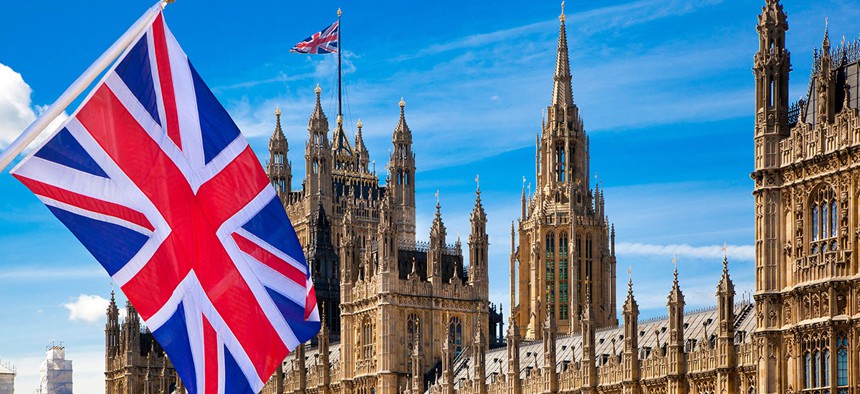Hackers Are Bombarding the UK With Two Serious Cyberattacks a Day, the British Government Claims

IR Stone/Shutterstock.com
That's 188 serious cyberattacks in the last three months.
The UK was hit by 188 serious cyberattacks in the last three months, or two serious attacks a day, the director of a new cybersecurity center, Ciaran Martin, told the Sunday Times (paywall) two days ago. These attacks included attempts by Russian hackers, working for their government, to extract defense and foreign policy secrets from the government, Martin said.
Such attacks are the impetus for the cybersecurity center, which Queen Elizabeth II officially opened today—part of a plan to spend £1.9 billion by 2020 to boost the British government’s online abilities, as security officials report increased cyber-aggression. The National Cyber Security Center, in London’s Victoria district, is run by the British intelligence agency GCHQ.
WATCH: The Queen arrives to open the @ncsc with the Duke of Edinburgh, she's told "it's a lot warmer inside!" pic.twitter.com/OTeZBhJOng
— Emily Nash (@emynash) February 14, 2017
The daily barrage of attacks are taking place as Russia’s online aggression has undergone a “step change” in the last two years, Martin says. In this increasingly bleak online landscape, politicians are taking the opportunity to announce victories and new programs. Chancellor of the exchequer Phillip Hammond today also announced a plan for the private sector to “embed” 100 workers in the new center to develop solutions to attacks. The companies are expected to pay for these placements.
Hammond previously told the Sunday Telegraph (paywall) that the new center had successfully blocked 34,550 “potential attacks” on government departments in six months, or 200 incidents a day. This was a reference to an automated anti-phishing solution deployed for the center by the British firm Netcraft, which hunts for phishing sites and has them taken down or blocked.
The volume of attacks on the UK are small compared to the US. The US reported 77,000 cyberattacks in 2015, a 10% increase from a year earlier. An earlier US government survey found 2,267 incidents over fiscal year 2014 that affected “high-impact” systems at federal agencies. In Europe, German intelligence joins British officials in their assessment that Russian hacking poses a new and serious threat.


